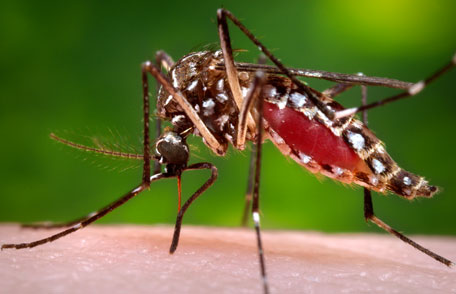Kat KelleyGHTC
Kat Kelly is a senior program assistant at GHTC who supports GHTC's communications and member engagement activities.
US Senator Bernie Sanders (I-VT) released a plan last week as part of his Democratic presidential bid to incentivize research and development (R&D) for new HIV and AIDS medicines while ensuring they remain affordable. Under his proposal, drug companies would receive a cash prize for market introduction of a novel HIV and AIDS therapy, but would not receive exclusive marketing rights, an idea he first proposed in 2012. The prize would reflect the “therapeutic value” of the treatment as well as the number of people expected to benefit from the product. To finance these cash prizes, the Senator is proposing a Prize Fund for HIV and AIDS of US$3 billion per year. Eliminating exclusive market rights for these new drugs would ensure that generic products could immediately enter the market, spurring competition and lowering prices. However, critics argue that the proposal could take limited research funding away from other diseases and note that the plan does not detail how the size of the cash award would be determined for a given drug or to whom it would be distributed (i.e., the patent holder, the regulatory sponsor, public-sector agencies involved in the basic research, etc.).

The US Food and Drug Administration (FDA) announced last week its tentative approval of a trial of genetically engineered mosquitos to combat mosquito-borne diseases, pending 30 days of public comment. The mosquitos, developed by British company Oxitec, are intended to reduce the population of Aedes aegypti mosquitos, which transmit the Zika, dengue, chikungunya, and yellow fever viruses. The mosquitos are all male and when they reproduce with native mosquitos, their offspring are not viable, dying before reaching adulthood. The trial, if approved, will take place in the Florida Keys; Oxitec’s mosquitos would be released up to three times per week for up to 22 months. After a careful review, the FDA has determined, in collaboration with the US Centers for Disease Control and Prevention and the Environmental Protection Agency, that the trial is safe for humans, animals, and the environment. The agency noted that the trial will be short and that the Aedes aegypti “occupy a fairly uncontested ecological niche,” making it unlikely that another mosquito population would expand to fill the vacuum.
The United Nations Children’s Fund (UNICEF) and the government of Malawi are conducting a pilot program to determine the cost, feasibility, and impact of using drones—unmanned aerial vehicles—to expedite HIV and AIDS testing for infants. In Malawi, 10 percent of adults are HIV-positive, and there are 130,000 children living with HIV and AIDS. However, it can take up to ten weeks to get HIV test results for infants born to mothers with HIV and AIDS, who require specialized testing. The blood samples are transported by ambulance or bike to one of only eight labs in the country capable of conducting these tests. It then takes at least two weeks for the tests to be completed, and often the results wait in the lab until there is a large batch. UNICEF and the Malawi government are testing the feasibility of drone delivery at different times and in different weather conditions and will be comparing the costs, which include electricity for charging the device and the hardware itself, to current delivery methods, which include fuel and driver salaries. The goal is to reduce testing time from more than two months to just a few days, ensuring that children with HIV and AIDS can start treatment much sooner.